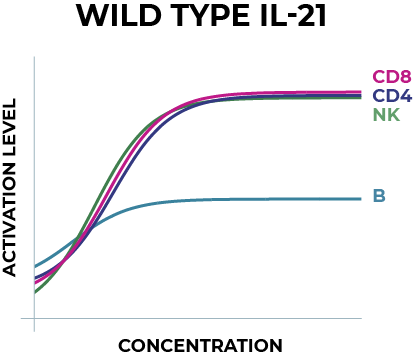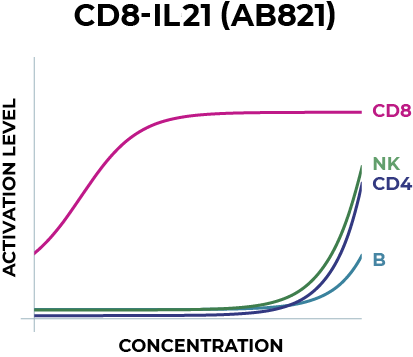IL-21 is a cytokine that activates STAT3, a master transcription factor involved in a broad spectrum of adaptive and innate immune functions.
In oncology, IL-21 has historically demonstrated promising signs of efficacy in early clinical studies, but toxicities and pleiotropic effects remain a challenge, including suppression of antigen presentation by myeloid cells, which could dampen overall anti-tumor efficacy. Similar to the concept behind AB248, our cis-targeted IL-2, we hypothesized that focusing the activity of IL-21 to only the immune cell type primarily responsible for anti-tumor efficacy, while avoiding activation of other cells, would maximize the efficacy potential of IL-21 and reduce toxicity. We have developed a cis-targeted IL-21 that selectively targets CD8+ T cells, the immune cell type driving anti-tumor response. IL-21 promotes cytotoxicity, memory cell differentiation, survival, and reinvigoration of CD8+ T cells, all of which support anti-tumor activity, in contrast to IL-2, which predominantly supports CD8+ T cell expansion.
We believe that AB821 has the potential to treat tumor types that may not be responsive to IL-2 and/or PD-1 therapy. PD-1-resistant tumors are associated with reduced numbers of memory T cells and increased numbers of exhausted T cells, suggesting that this molecule may be beneficial in these resistant tumors. AB821 also has the potential to be used in combination with AB248 to enhance efficacy by combining a proliferation signal with one that optimizes functionality and prevents T cell exhaustion.


AB821 is >1000x selective for CD8+ T Cells